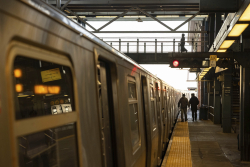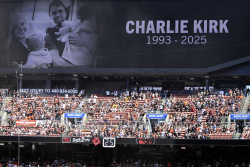Even with its military reputation in tatters, Hezbollah still draws legitimacy from government corruption and its own provision of public services.
While Lebanese president Joseph Aoun’s election in January 2025 dealt a severe blow to Hezbollah, the most significant source of the group’s popularity and legitimacy has been left unchecked. Hezbollah’s military wing frequently makes headlines, but the foundation of its support among ordinary Lebanese people is its social services wing. Multiple organizations, including the Jihad al-Binaa Development Group, Islamic Health Organization, and the Imam al-Mahdi Scouts, provide a range of public services such as basic infrastructure, education, healthcare, and paramilitary training for teenagers.
Hezbollah’s ability to supply public goods and social welfare to Lebanon’s poor and rural communities continues to pay off at the polls today, despite the results of the recent presidential election. In the May 2025 municipal elections, the Hezbollah-Amal joint ballot won most of its traditional strongholds in Beirut and southern Lebanon, winning 109 of 272 municipalities in the Nabatiyeh and South Governorates in addition to other contested seats. Ahead of next year’s 2026 legislative elections, Aoun’s government must regain control of the country’s social services if it wants to continue drawing support away from Hezbollah.
Moreover, instead of waiting for the perfect conditions to provide aid, finance reconstruction efforts, and fund programs that will allow the Lebanese Armed Forces (LAF) to degrade Hezbollah in the long term, Washington and its Gulf partners should instead take proactive steps to build on existing momentum and partner with Beirut to support Aoun’s efforts to reassert Lebanese sovereignty.
Much of the country’s ongoing economic instability—and Beirut’s corresponding inability to fund social service initiatives—stems from the endemic corruption prevalent throughout the Lebanese government. For example, Riad Salameh, the former governor of Lebanon’s central bank, was charged in 2024 with embezzlement after allegedly smuggling $330 million in state funds out of the country and investing it in European real estate.
While Salameh himself is not a member of Hezbollah, the group has benefitted immensely from both the state’s and the central bank’s widespread corruption, using government institutions to serve its own political ambitions and enrich key stakeholders at the expense of the Lebanese people, whom it claims to represent. The group’s positions throughout different ministries also allow it to distribute resources unequally, favor its constituents, and effectively act as a “shadow government.” As a result of these ongoing challenges with corruption, the government is unable to invest in vital sectors like healthcare and must rely on Gulf partners to assist with paying its public servants and military personnel.
However, the Aoun administration has made substantial progress on reforms to demonstrate to its allies that Beirut is prepared to receive support from partner countries—and utilize it effectively. In April, the government managed to pass a key banking reform bill on secrecy and transparency, the IMF has been pushing for since it began negotiations with Beirut in 2022. Even so, Lebanon will make progress on reforms faster and more efficiently if it’s able to draw on regional and international partners for technical assistance and financial support.
With the right resources, Aoun can demonstrate his willingness and ability to regain control over key state institutions, increasing his chances of further degrading Hezbollah’s political power before citizens head to the polls next May. The White House regularly expresses support for Beirut’s efforts to combat Hezbollah both militarily and politically. It should therefore capitalize on Aoun’s early successes by 1) making more US funding available to support key service sectors and 2) encouraging Gulf partners to do the same. Increased investment in critical infrastructure, energy, and healthcare—combined with support for state social welfare programs—will significantly boost Beirut’s capacity to effectively provide services that many of Hezbollah’s most loyal supporters currently rely on the group for.
Lebanon currently struggles to construct, repair, and maintain much of the country’s critical infrastructure, especially its electricity plants. As of 2025, Lebanon still depends on private generators for up to 90 percent of its electricity. Fuel shortages, which frequently affect these plants, lead to power outages and major blackouts. Hezbollah views Beirut’s chronic utility shortages as an opportunity to demonstrate its ability to serve people more effectively than the state. For example, in 2021, former Hezbollah leader Hassan Nasrallah secured fuel shipments from Iran amid another fuel shortage crisis, circumventing both Beirut and international financial sanctions.
Addressing these utility challenges presents another major opportunity to undermine Hezbollah’s hold on Lebanese society. In the short term, Beirut should utilize the Trump administration’s recent waiver on the Caesar Act—a series of sanctions and travel restrictions imposed on the former Assad regime—to access the Arab Gas Pipeline for fuel. Additionally, Aoun should utilize the newly approved $250 million in aid from the World Bank to jumpstart reconstruction and cleanup efforts necessitated by Hezbollah’s 2024 war with Israel.
Looking to the future, Beirut should also revive Qatar’s 2024 proposal to build three renewable energy power plants in Lebanon, which would boost the country’s energy production capacity by 25 percent. However, this deal should instead be struck multilaterally in partnership with the rest of the Gulf Cooperation Council, in an effort to ease fears of disproportionate influence by Doha. Beirut could also capitalize on its growing solar energy momentum and expand the local industry through partnerships with solar energy producers in the Gulf, Jordan, and Morocco.
This would equip the country with lasting energy infrastructure and the ability to mitigate the long-term impacts of climate change. Washington is well-positioned to play a productive diplomatic role facilitating many of these deals, especially as it seeks to reorient traditional foreign aid and development efforts with ones driven largely by private investment.
The Middle East is entering a new era; Iran is weaker than it has ever been, the Assad regime is no more, and Lebanon is under new leadership with the potential to create lasting change. Beirut must target the source of Hezbollah’s support system—its social services—if it wants disarmament efforts to succeed in the long run.
As long as Hezbollah can fulfill a sovereign state’s responsibilities, it will always hold leverage over its population, attracting support and undermining the legitimacy and capacity of the central government. By providing services that citizens once relied on a terrorist militia for, Beirut can regain the trust of its public and reassure them that their needs will be met when they head to the polls in May 2026.
About the Authors: Delaney Soliday and Adam Koussih
Delaney Soliday is a research assistant with the Middle East Security Program at the Center for a New American Security. Prior to joining CNAS, she was a research assistant for the Jeanette and Eli Reinhard Program on Counterterrorism and Intelligence at the Washington Institute for Near East Policy. She holds a BA in Global Affairs from George Mason University. Her language skills include both English and Arabic.
Adam Koussih is an intern with the Middle East Security Program at the Center for a New American Security and a graduate researcher for the National Security Policy Center at the University of Virginia. He holds a BA in International Studies and Arabic from the University of Mississippi.
Image: Gabriele Pedrini / Shutterstock.com.

















